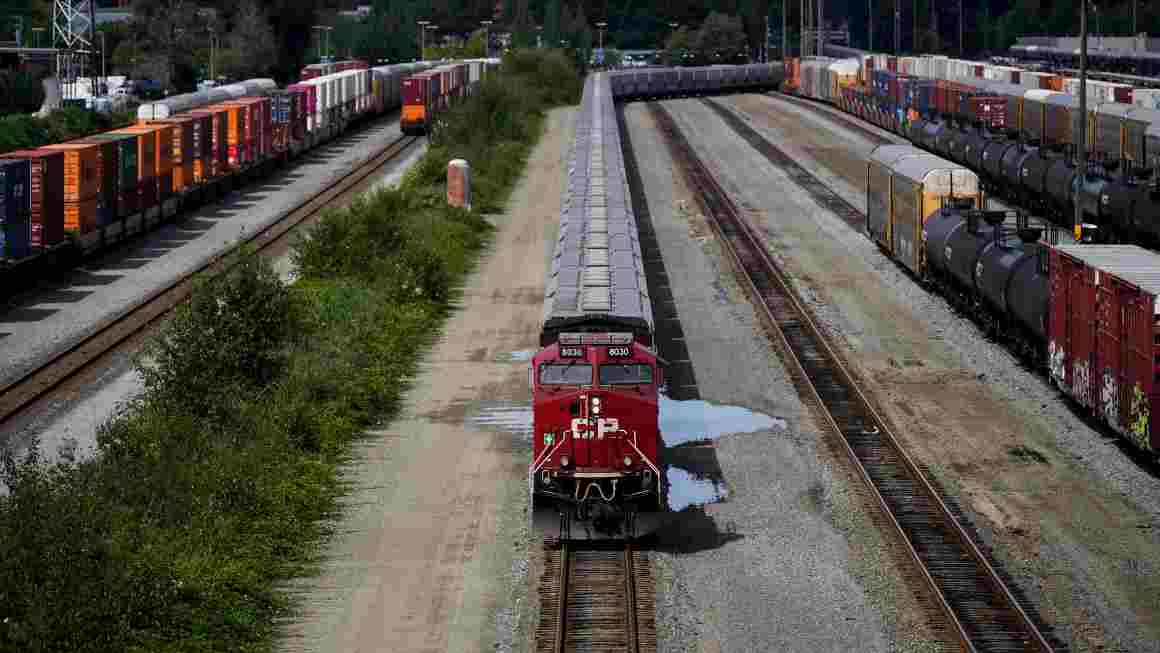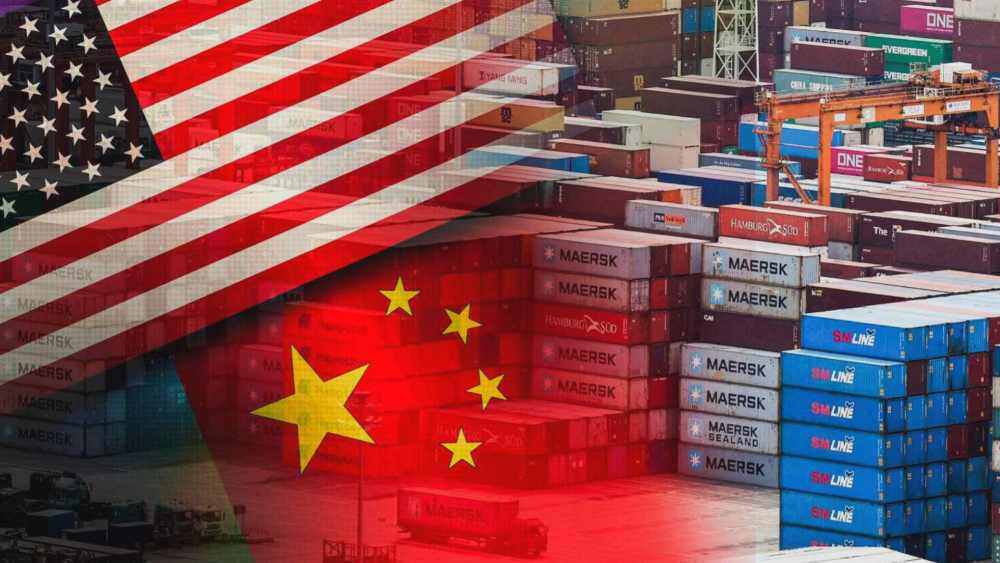Canadian Freight Railroad Shutdown Could Impact US and Canadian Economies
Aug 22, 2024 / GMT+6
Canadian National and Canadian Pacific railroads have shut down, locking out 9,000 workers. This could disrupt key US and Canadian industries and economies.
More topics for you...This topic continues below.
China reports record $1.2 trillion trade surplus for 2025, defying Trump's tariffs.
Canada’s main freight railroads, Canadian National (CN) and Canadian Pacific Kansas City (CPKC), have stopped operations, locking out 9,000 Teamsters union members.
This shutdown threatens both Canadian and US economies, as about a third of their freight crosses the US-Canadian border. This could affect industries like agriculture, automotive, home building, and energy.
CPKC said, “We understand the impact on Canadians and our economy. This lockout is meant to prevent more problems during the busy fall season.” They warn that a long dispute could make things worse.
The shutdown shows how closely linked the two nations’ economies are. Smooth goods movement across the border is essential. US auto plants might have to shut down if they can’t get parts from Canadian factories.
Farmers could face fertilizer shortages, and US water treatment plants might run out of chlorine.
[Image: A Canadian Pacific Railway worker walks beside a locomotive in a marshalling yard in Calgary on Wednesday, May 16, 2012. THE CANADIAN PRESS/Jeff McIntosh]
This is the first time both major Canadian railroads have stopped operations at the same time due to a labor dispute. Before this, Canadian Pacific had a 60-hour strike in 2022, and Canadian National had a nine-day strike in 2019.
Unlike a strike, where union members refuse to work, this lockout means management has stopped employees from working. CPKC's spokesperson, Patrick Waldron, said stopping now is better than dealing with a strike during peak shipping times.
The fall shipping season is vital with new crops and holiday goods arriving. If the lockout extends into this period, the effects could be severe.
How integrated are the rail networks across North America?
Canadian rail networks, run by CN and CPKC, are closely connected with US rail systems. They link with major US rail companies like BNSF Railway, Union Pacific, Norfolk Southern, and CSX.
These links help move goods across the continent, including trade routes and ports. CN's network goes to New Orleans, and CPKC connects to US ports like Corpus Christi and New Orleans. This integration is vital for moving billions of dollars worth of goods efficiently between Canada, the US, and Mexico.
How would a Canadian rail stoppage affect the United States?
A shutdown of Canadian railroads would affect about a third of their freight that crosses into the US. Many American businesses, especially in the Midwest, rely on Canadian ports for imports and exports.
For example, Montreal offers quicker shipping to Europe, and Vancouver provides faster access to Asia. Without these rail links, industries might face delays and higher costs, impacting the supply chain for products like auto parts and agricultural goods.
How would the US and Canadian farm sectors be affected?
The rail stoppage would disrupt the transport of key agricultural products. US spring wheat from Minnesota, North Dakota, and South Dakota would face delays getting to the Pacific Northwest for export.
Canadian potash and grain exports would also be affected. Both countries trade a lot of agricultural goods; the US exported $28.3 billion in products to Canada in 2023 and imported $40.1 billion from Canada. A stoppage would cause shortages and higher costs for items like ethanol, potash, and meat.
Will trade with Mexico be affected too?
Trade between Canada and Mexico might also be affected. Canada is Mexico’s third-largest trading partner, while Mexico is Canada’s fourth. They trade goods like trucks, cars, mangoes, and avocados.
Much of this trade moves by rail. A disruption could slow down shipments of these products and affect the $55 billion in trade between the two countries.
Can the trucking industry step in?
The trucking industry is seeing higher demand and rising rates due to the rail stoppage. While trucking can handle some of the freight, it can’t fully replace rail transport for bulk goods.
Trucks may not have the capacity or equipment needed for large cargoes like potash, food grains, and coal. Railroads are more efficient for moving these large volumes over long distances, which is crucial for keeping supply chains running smoothly.







